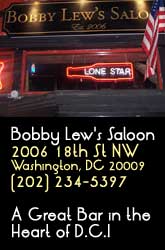District Court Failed to Give Notice That Scope of Summary Judgment Ruling Would Include Defendant’s Non-Commercial Prototypes
January 31, 2014The U.S. Court of Appeals for the Federal Circuit on July 26 ruled that a district court erred in finding that a directional drill patent was not infringed by non-commercial prototypes because the patentee was not given sufficient notice that these devices were within the scope of the summary judgment decision (Charles Machine Works Inc. v. Vermeer Manufacturing Co., Fed. Cir., No. 2012-1578), 7/26/13). Charles Machine Works Inc. (CMW), maker of the Ditch Witch® line of industrial line of industrial products, has a patent (5,490,569)relating to a two-pipe drill for horizontally boring holes underground. The inner pipe rotates the drill bit. An outer pipe, which includes a body and casing, is used for steering. A structure called a “deflection shoe” is discussed in the patent as a steering mechanism. If the casing does not rotate, the deflection shoe causes the drill to deflect away from a straight path. When the casing rotates, however, the drill follows a straight horizontal path. CMW brought suit against Vermeer Manufacturing Co., alleging that its non-commercial prototypes and commercial products infringed the ‘569 patent. The Senior Judge Charles R. Wolle of the U.S. District Court for the Southern District of Iowa granted Vermeer a summary judgment of no literal or equivalents infringement as to all of the accused products. CMW appealed. As to literal infringement, the parties limited their appellate arguments the district court’s claim construction, which principally read the “deflection shoe” limitation in the asserted claims as a “structure that can be attached to the side of the body or casing and that can be positioned to deflect the boring apparatus from a linear path.” The district court also construed the “mounted on” language in the asserted claims to mean “attached to.” 
Finding no error in claim construction, Judge Kimberly Moore affirmed the summary judgment of no literal infringement by Vermeer’s commercial products. However, Moore reversed and remanded the summary judgment of no equivalents infringement by the accused commercial products. On this point, she found that CMW’s expert created a genuine issue of fact as to whether the accused commercial products (1) have substantially the same function as the claimed element, (2) achieve that function in substantially the same way, and (3) achieve substantially the same result under the doctrine of equivalents analysis set forth in Warner-Jenkinson Co. Inc. v. Hilton Davis Chem. Co., 520 U.S. 17 (1997). Moore cited the expert’s testimony that the accused bent sub and the claimed deflection shoe have the same function of deflecting the drill bit from a linear path, perform the function in the same way, and achieve substantially the same result such that these structures “could be considered substitutes.” Given this evidence, “a reasonable jury could have found equivalence,” and the district court erred by ruling to the contrary, Moore wrote. Further, the appellate court vacated the summary judgment of noninfringement as to Vermeer’s prototypes. Here, Moore agreed with CMW’s argument that there was insufficient notice that these non-commercial products were within the scope of the summary judgment decision. She first pointed with emphasis to Vermeer’s own motion, which was titled “MOTION FOR SUMMARY JUDGMENT THAT VERMEER’S COMMERCIAL PRODUCTS DO NOT INFRINGE.” Second, she observed Vermeer’s proposed final rulings titled “GRANT SUMMARY JUDGMENT THAT VERMEER’S COMMERCIAL PRODUCT DOES NOT INFRINGE THE ASSERTED CLAIMS … OF THE ‘569 PATENT.” Further, Moore quoted Vermeer’s counsel’s statement during the summary judgment hearing that the motion was “limited to the commercial product.” Based on this showing, “CMW had insufficient notice that the summary judgment decision would include the accused prototypes,” Moore concluded. The district court’s ruling was vacated in part, affirmed in part, reversed in part, and remanded. Moore’s opinion was joined by Judges Timothy B. Dyk and Haldane Robert Mayer. Charles Machine Works was represented by Robert D. Tomlinson of Tomlinson, Rust, McKinstry, and Grable, Oklahoma City. Vermeer was represented by Rachel K. Zimmerman of Merchant & Gould, Minneapolis. Read the Charles Machine Works Inc. v. Vermeer Manufacturing Co. opinion.
|


